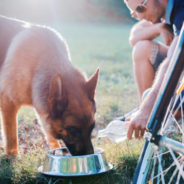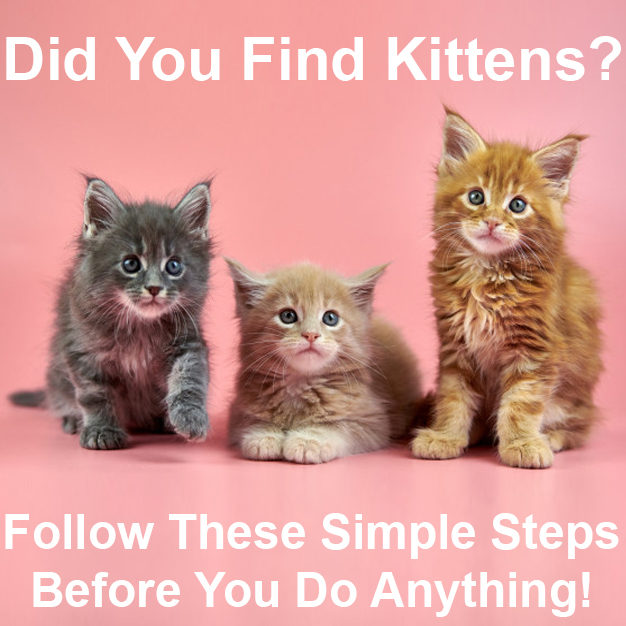Using essential oils with cats
Many people believe essential oils and cats do not mix, and that’s true when it comes to questionable products and incorrect usage. But top-quality essential oils, used properly, can be profoundly healing for our feline friends. As a cat parent, you have reason to be concerned about using essential oils on and around your kitty. But you shouldn’t fear this modality so much that you choose not to use it at all. When utilized properly, essential oils are an important natural medicine, and can be both safe and effective for felines....
How Do Sounds Affect Your Dog Or Cat?
Your dog or cat’s sense of hearing is far more sensitive than yours, so he can be stressed by sounds you may not even be aware of. Find out how to create a more soothing soundscape for him in your home. It’s New Year’s Eve and the fireworks are starting. Your dog or cat trembles, lowers his tail, and runs off to a safe place such as his crate or under the bed. Loud noises like fireworks and thunder are scary for a lot of animals, and even to some people, especially children. But what about the sounds we humans don’t...
Moving house? 5 steps to make it easier on your dog or cat
Submission Guidelines Thank you for your interest in writing for Animal Wellness. As the #1 natural health magazine for pets in North America, we take pride in providing our readers with the information they need to make wise health care choices for their animal companions. Our publication embraces the entire holistic spectrum, from physical health issues to the emotional and spiritual well being of our animals. We welcome unsolicited articles and story outlines as long as they focus on holistic healing, whether physical, emotional or...
Find Out Why Cats Have an Aversion to Water but Loves to Play with a Running Faucet
If there is one thing that cats hate so much, it is water. You keep seeing your cat grooming itself, but it does not want to take a bath. You have even bought a special shampoo for it, but what it wants is simply to play with a faucet. But no taking of shwoer. Why do cats have such an aversion of water? Here are the answers: FIRST Water makes a cat’s coat feel unpleasant. It feels colder, heavier, and uncomfortable. according to Dr. Cohen based on a theory. It can also take a long time for a cat’s hair to dry on its own,”...
A Male Cat Plays Big Brother to a Puppy, and It’s so Cute!
Can a cat love a dog with all of his heart, soul, strength? and brotherly patience? Meet Teddy, an adult male cat. Then, there’s Albi the new puppy in town. From the first day they met, the two animals have been behaving like soul mates. Photo: YouTube/The Dodo The reaction of her pets toward each other exceeded their owner’s expectations. The first meeting was marked with the usual sniffing from Albi’s part to get himself acquainted with Teddy’s smell to which he didn’t seem to find anything strange. As for...
Questions to Ask Yourself While Choosing the Best Food for Your Pet
Whether you’re bringing home a new addition or simply want to reassess your pet’s current diet, it’s important to take a critical look at the brands you’re considering. To help you make an informed decision, we’ve put together some helpful questions to ask yourself while choosing the best food for your pet. Do they use high-quality ingredients? Your pet’s food is only as good as what’s inside it, so you want to find a brand that never cuts corners when it comes to ingredients. If you see things such...
Our Children’s Book, “The Dog Dilemma!”, Helps Families Prepare for Pet Adoption
Written for young readers, the book tells the story of a sister and brother duo and their quest to convince their parents that they’re ready to add a furry 4-legged friend to the family. After all, how hard can taking care of a dog be? “The Dog Dilemma!” is a heartwarming story of two siblings that set out to prove to their parents that they’re ready for the responsibility of caring for their new furry friend. The kids are EVEN willing to pick up poop—it turns out that owning a dog actually IS a lot of...
How to keep your dog or cat hydrated
Adequate water intake is essential to good health, particularly during the hot summer months. Here’s why, along with tips on keeping your dog or cat hydrated. As summer arrives, fresh adventures await our four-legged friends and their human companions. Maintaining proper health is vital to enjoying these grand adventures, and one key component, especially for outdoor enthusiasts, is maintaining adequate hydration. Take a look at why keeping your dog or cat hydrated is so important to his health, and how to help ensure he’s...
Now There’s “Mouser” Food with Real Mouse Meat for Cats
Finicky cats! They are the inspiration behind Mouser Food! Mouser Food is made with real mouse meat and will surely tempt even the most discriminating of feline tastebuds. Photo: YouTube/Kitten Life Mouser Food is also available in four flavors: Field Hunter with chicken as a primary ingredient; Forest Hunter with turkey; Pond Hunter with duck; and Brush Hunter with rabbit. Yes, pet owners will realize that even if mouse meat is very appealing to cats, their appetite may still be influenced by a variety of flavors. The Story of Finicky Cats...
Dr. Aziza’s Top Pet First Aid Tips She Wishes All Her Pet Parent Patients Would Know
Did you know that April is National Pet First Aid Awareness Month? During this month the veterinary community aims to raise awareness about pet first aid and teach pet parents what to do in emergency situations. We’ve asked our Freshpet vet, Dr. Aziza, to share her top pet first aid tips she wishes all pet parents would know – read on to find out what’s on her list! Tip #1: Know who to contact in the case of an emergency If your pet has ingested or come into contact with poisonous/toxic substances (i.e. dark chocolate), call...

























